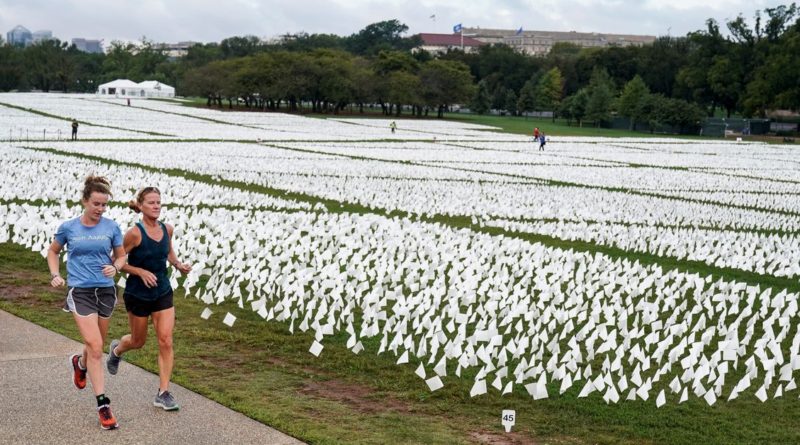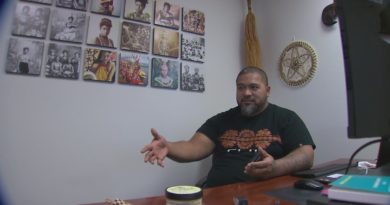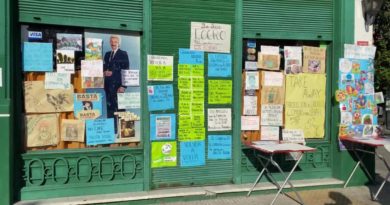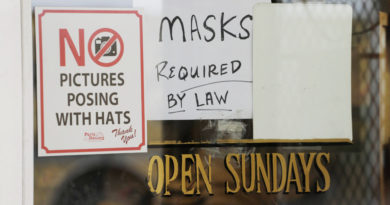COVID-19 victims remembered on Washington’s National Mall with 650,000 white flags
WASHINGTON, Sept 17 (Reuters) – An exhibition of white flags representing Americans who have died of COVID-19 opened on Friday, covering more than 20 acres of the National Mall in Washington.
Last year, artist Suzanne Brennan Firstenberg created an outdoor installation in Washington comprised of more than 267,000 white flags – one for every person in the United States who had died from COVID-19.
This year, she has reprised her work. Now, there are some 650,000 flags placed on the National Mall.
“When numbers get so large, it becomes difficult to really understand them, so I as a visual artist wanted to make the number physical,” she said as she oversaw its construction on Wednesday.
“Taken holistically, this is a physical manifestation of empathy,” said Firstenberg during the opening ceremony of the art installation on Friday.
The exhibition, entitled “In America: Remember,” will remain on display through Oct. 3, 2021.
It features 43 sections of white flags and 3.8 miles (6 km) of walking paths, as well as white benches where visitors can stop to reflect, according to the artist’s website.
People can also dedicate an individual flag to a loved one lost to COVID-19, either in person or online.
“Once you take one flag and think about all the grief that is embodied by that flag, then you lift your gaze. That’s the power of this art – understanding the immensity of our loss,” said Firstenberg, adding that the flags are meant to mimic the headstones at Arlington National Cemetery.
For days, teams of workers – including Firstenberg – spent hours under the hot sun installing the thousands of flags individually by hand.
She said she had been deeply moved and motivated by the public’s response.
“I was just so intent on planting all these flags and making people understand, that once people began laying on top of my art their own grief and experiences, it became truly overwhelming,” Firstenberg said.
Her website bills this year’s work as the largest participatory art exhibition on the National Mall since the presentation of the AIDS Quilt, which began in the 1980s.
Firstenberg hopes that this year’s exhibition will give Americans space to ponder the human toll of the coronavirus pandemic.
“There were times when I quested to just be alone with my flags last fall when I first did this iteration of the art,” she said. “Because I just had to find a quiet space to deal with all the pain that my art was representing.”
Reporting by Vanessa Johnston and Gershon Peaks; Editing by Diane Craft
Our Standards: The Thomson Reuters Trust Principles.




